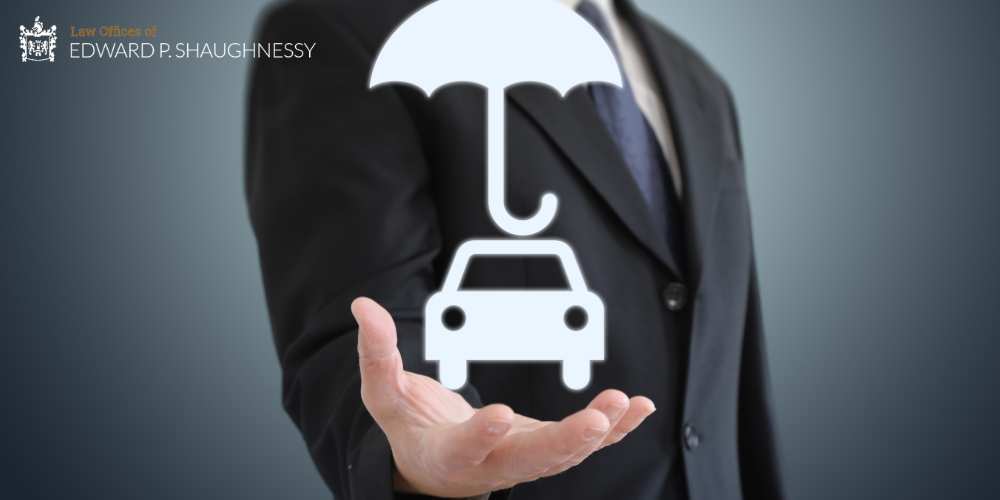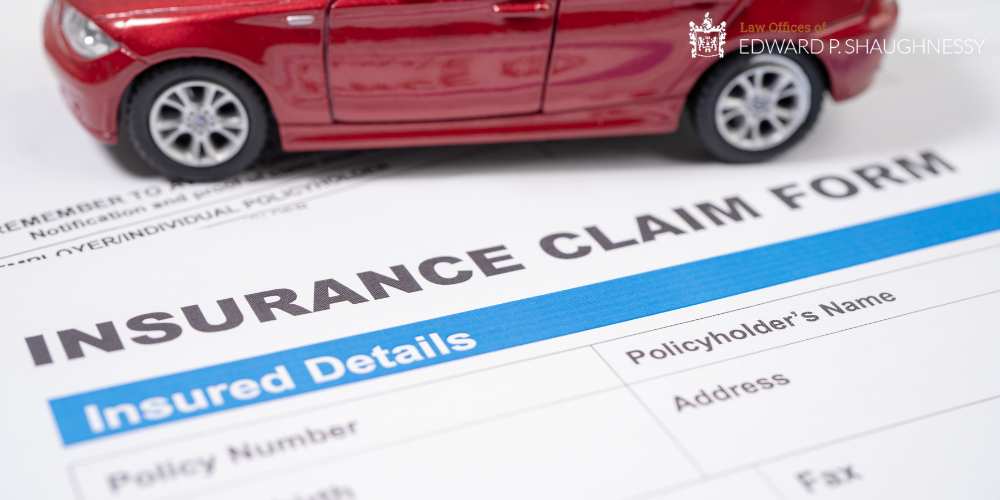Is Pennsylvania a no-fault state? Are you unsure whether Pennsylvania follows a no-fault insurance system for car accidents? Understanding the state’s laws is crucial for seeking compensation after an accident.
At the Law Offices of Ed P. Shaughnessy, our experienced personal injury attorneys in Easton, PA, are here to provide clarity and guidance on no-fault and at-fault accidents in Pennsylvania. Contact an Easton car accident lawyer today for experienced legal assistance tailored to your needs. Call (610) 258-9955 or complete the online intake form to schedule your free consultation.

Is Pennsylvania a No-Fault State?
Pennsylvania is a no-fault state for auto accidents. Typically, with no-fault states, the system aims to streamline the insurance claim process and reduce litigation. However, Pennsylvania’s no-fault laws are complex, allowing individuals the right to choose between fault and no-fault car insurance coverage.
Pennsylvania’s No-Fault System
A no-fault system for car accidents means regardless of who caused the motor vehicle accident, each driver’s own insurance company covers their medical expenses. Pennsylvania’s no-fault system aims to provide prompt and fair compensation for significant injuries without the need for lengthy litigation.
A unique characteristic of Pennsylvania’s no-fault system is that it is also a choice no-fault state. Being a choice no-fault state allows drivers the right to choose between fault and no-fault insurance coverage. Drivers need to be aware of insurance policy limits imposed by Pennsylvania law to ensure they are adequately protected by their own insurance policy.
It’s important to note that drivers still have a duty of care in Pennsylvania to obey traffic laws and do their part to avoid injuring others on the roads
Pennsylvania Personal Injury Protection (PIP)
Pennsylvania Personal Injury Protection (PIP) ensures that regardless of whether the person is the at-fault driver, your own insurance policy covers medical expenses and related costs up to coverage limits. Under Pennsylvania law, PIP offers accident victims prompt financial assistance after an accident occurs to cover medical costs associated with the accident.
Comparative Negligence in Pennsylvania
Under Pennsylvania’s no-fault system, comparative negligence plays a significant role in determining compensation after an accident. This legal principle allows courts to assign a percentage of fault to each party involved in an accident. A plaintiff’s recovery may be reduced based on their degree of fault, but they can still seek reparation even if partially responsible for the accident.
Coverage Limits Under Pennsylvania Law
There are coverage limits that determine the extent of benefits available to individuals involved in a car accident under the Pennsylvania no-fault system. These limits dictate the amount of compensation that can be obtained for medical expenses, lost wages, and other accident-related costs.
The minimum insurance policy coverage requirements for PIP benefits are set by Pennsylvania law, providing a baseline level of protection for insured drivers. These limits may vary depending on the specifics of the insurance policy.
Full Tort Coverage vs Limited Tort Coverage in Pennsylvania
As a choice no-fault state, Pennsylvania drivers have the option to choose tort policies when purchasing auto insurance.
Limited tort insurance, commonly associated with no-fault states, limits an individual’s ability to sue for non-economic damages after a car accident. While policyholders with limited tort coverage may still seek compensation for medical expenses and lost income from their own auto insurance provider, they typically cannot pursue legal action for pain and suffering unless the injuries meet certain criteria defined by the insurance coverage.
On the other hand, full tort coverage typically offers more extensive legal rights to policyholders. With a full tort policy, individuals retain the right to sue for non-economic damages if they are injured in a car accident. This means they can pursue compensation for pain and suffering, emotional distress, and other intangible losses resulting from the accident.
Although full tort coverage may come with higher premiums compared to limited tort policies, full tort coverage typically provides greater flexibility and protection for policyholders, especially in cases of serious injuries or long-term impairment.

At Fault vs No Fault Insurance System
In Pennsylvania, full tort and limited tort are commonly known as fault and no-fault insurance, respectively.
In an at-fault insurance system (full tort), the driver responsible for causing the accident is deemed legally liable for the resulting damages. This means the at-fault driver’s insurance provider is typically responsible for compensating the other party for their injuries and property damage.
Conversely, in a no-fault insurance system (limited tort), each driver’s auto insurance policy covers their own medical expenses and property damage, regardless of who caused the accident. Under a no-fault system, individuals involved in a car accident must pursue compensation from their own insurance company, and they generally cannot sue the at-fault party for additional damages unless certain thresholds are met.
What is No-Fault Insurance?
In Pennsylvania, limited tort coverage is part of the state’s no-fault insurance system, which significantly impacts how compensation is sought after auto accidents. Under this system, drivers are required to seek compensation from their own insurance policies regardless of who is at fault.
Limited tort restricts the policyholder’s ability to sue for non-economic damages, such as pain and suffering, while still providing coverage for economic damages like medical bills and lost wages after an auto accident. Pennsylvania’s no-fault rules prioritize compensating individuals for their losses promptly, without the need for protracted legal battles to determine fault.
What Does No-Fault Insurance Cover in a Car Accident?
In a no-fault state like Pennsylvania with limited tort coverage, no-fault insurance primarily covers economic damages resulting from a car accident. Examples of economic damages include:
- Medical bills
- Lost wages
- Property damage
- Vehicle rental expenses
Opting for a limited tort policy may result in lower premiums but can restrict the ability to seek compensation for non-economic damages like pain and suffering.
Pennsylvania Auto Insurance Requirements
Pennsylvania drivers are required to carry auto insurance coverage that meets the state’s minimum requirements. These include bodily injury liability coverage, property damage liability coverage, and injured party benefits. These requirements ensure that drivers have adequate coverage and are in line with Pennsylvania’s no-fault insurance system.

Bodily Injury Liability Coverage
Drivers are required to carry bodily injury liability coverage with minimum limits of $15,000 per person and $30,000 per accident. This coverage helps pay for medical expenses, lost wages, and legal fees for the injured party if you’re at fault in an accident.
Property Damage Liability Coverage
Property damage liability coverage in Pennsylvania provides financial protection for repairing or replacing the other party’s vehicle or property in a car accident. The state mandates a minimum coverage of $5,000 to ensure sufficient financial assistance for property damage claims resulting from accidents.
Injured Party Benefits
Injured party benefits, also known as Personal Injury Protection (PIP), cover medical expenses and lost income for you and your passengers, regardless of fault. The state requires a minimum coverage of $5,000 for medical benefits and $15,000 for lost income benefits, ensuring adequate financial support for those injured in auto accidents.
Filing Claims With the At-Fault Driver’s Insurance Company
Despite being a no-fault state, if you sustain significant injuries in an auto accident caused by another driver, you may still seek compensation beyond your own insurance policy. With full tort coverage, accident victims have the option to file an insurance claim with the at-fault driver’s insurer.
To do so, gather relevant documentation, such as police reports and medical records, to support your claim. Provide the insurer with detailed information about the accident, including the extent of your injuries and any monetary damages incurred. With thorough documentation and clear communication, it’s possible to pursue fair compensation for your losses from the at-fault driver’s insurance company in Pennsylvania.

When to File a Personal Injury Lawsuit After a Car Accident in Pennsylvania?
Accident victims, particularly those with serious injuries, may find it necessary to file a personal injury lawsuit after a car accident despite the no-fault state policy, especially if they don’t have uninsured motorist coverage in Pennsylvania. Opting for full tort coverage allows accident victims the flexibility to pursue legal action against the at-fault driver for compensation beyond what is covered by basic insurance policies. If the accident results in significant medical costs, emotional distress, or other substantial damages, pursuing a lawsuit may be the most appropriate course of action.
How Can an Easton Car Accident Lawyer Help?
An Easton car accident lawyer can be pivotal in assisting those injured in a car accident. They handle all legal aspects, from gathering evidence to negotiating with insurance companies. By advocating for their client’s rights, they alleviate the legal burden, allowing the injured individual to focus on recovering from serious injuries. With their expertise in personal injury law, a car accident lawyer in Easton can help achieve the best outcome for their client’s car accident case.

Experienced Personal Injury Attorney for Car Accidents in Easton, PA
If you have been injured in a car accident, schedule a free consultation today with an experienced car accident lawyer at the Law Offices of Edward P. Shaughnessy. Call (610) 258-9955 or complete the online intake form to schedule your appointment.





